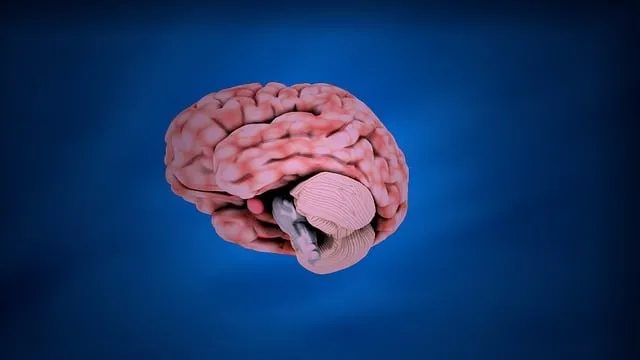Kaiser Permanente behavioral health services Boulder leads in mental wellness self-assessment with evidence-based tools, combining cognitive behavioral therapy (CBT) and mindfulness for accurate insights. Their holistic approach, focusing on stress reduction, self-esteem improvement, and early intervention, empowers individuals to take control of their mental health and develop lasting resilience. Through tailored assessment protocols and continuous improvement based on user feedback, they offer comprehensive support for diverse mental wellness needs.
Mental wellness self-assessment tools play a pivotal role in empowering individuals to take charge of their psychological well-being. Inspired by Kaiser Permanente Boulder’s innovative approach, this article delves into the development of comprehensive behavioral health tools. We explore the growing need for such assessments, highlighting how they facilitate personalized care. By integrating evidence-based practices, we discuss strategies for designing effective protocols. Furthermore, implementation, testing, and continuous improvement methods are scrutinized to ensure these tools remain impactful, aligning with Kaiser Permanente Behavioral Health Services’ commitment to excellence in Boulder.
- Understanding Mental Wellness Self-Assessment: The Kaiser Permanente Boulder Approach
- Identifying the Need for Comprehensive Behavioral Health Tools
- Designing Effective Assessment Protocols for Personalized Care
- Incorporating Evidence-Based Practices in Self-Assessment Development
- Implementation, Testing, and Continuous Improvement Strategies
Understanding Mental Wellness Self-Assessment: The Kaiser Permanente Boulder Approach

Mental Wellness Self-Assessment tools have become increasingly vital in promoting individual well-being and preventing more serious mental health issues. One notable approach is that pioneered by Kaiser Permanente behavioral health services Boulder, which focuses on empowering individuals to take an active role in their mental wellness journey. This method encourages self-reflection and provides a comprehensive understanding of one’s emotional state.
By adopting evidence-based Stress Reduction Methods, such as mindfulness meditation and cognitive behavioral therapy techniques, the Kaiser Permanente Boulder program equips participants with effective stress management workshops organization. Furthermore, it emphasizes Self-Esteem Improvement as a core component of its assessment process, enabling individuals to develop a positive self-image and resilience against mental health challenges.
Identifying the Need for Comprehensive Behavioral Health Tools

In today’s fast-paced world, mental wellness is as crucial as physical health, and recognizing the need for comprehensive behavioral health tools is more critical than ever. Organizations like Kaiser Permanente behavioral health services Boulder have been at the forefront of this movement, emphasizing the importance of Mind Over Matter Principles in fostering holistic well-being. The traditional approach to addressing mental health often focuses on treating symptoms rather than empowering individuals with coping skills and Mood Management strategies. However, emerging research highlights the long-term benefits of early intervention and proactive mental wellness management.
By integrating evidence-based practices and incorporating concepts such as Coping Skills Development, these tools can significantly enhance an individual’s ability to navigate life’s challenges. Kaiser Permanente’s behavioral health services Boulder have been instrumental in filling this gap by creating resources that not only diagnose but also equip individuals with the necessary tools to maintain mental balance and resilience. This shift towards prevention and self-care is a game-changer, ensuring folks can take control of their mental wellness journey.
Designing Effective Assessment Protocols for Personalized Care

Developing effective assessment protocols is a cornerstone of personalized mental wellness care. At Kaiser Permanente behavioral health services Boulder, experts emphasize the importance of tailoring interventions to individual needs. By integrating various self-assessment tools, professionals can gain profound insights into clients’ emotional well-being and thought patterns, fostering more precise diagnoses and targeted treatment plans. This approach not only improves outcomes but also enhances patient engagement by empowering individuals to actively participate in their mental health journeys.
The protocols designed should incorporate a multi-dimensional assessment framework, encompassing elements like positive thinking skills, social skills training, and emotional well-being promotion techniques. These tools must be adaptable, enabling healthcare providers to identify specific challenges and strengths unique to each client. Through such personalized assessments, Kaiser Permanente behavioral health services Boulder strives to offer comprehensive support that addresses the root causes of mental health concerns, ultimately fostering lasting recovery and resilience.
Incorporating Evidence-Based Practices in Self-Assessment Development

Incorporating evidence-based practices is a cornerstone when developing self-assessment tools for mental wellness. Kaiser Permanente behavioral health services in Boulder, CO, has been at the forefront of this approach, leveraging research to create effective and reliable assessments. By integrating strategies proven to enhance mental wellness, reduce anxiety relief, and offer trauma support services, these tools gain validity and reliability. This ensures that individuals receiving self-assessments benefit from a structured, evidence-backed process, promoting accurate insights into their mental health.
The development process involves careful consideration of established therapeutic techniques and methodologies. For instance, cognitive behavioral therapy (CBT) principles can be integrated to identify negative thought patterns, while mindfulness practices enhance self-awareness. This holistic approach, guided by evidence-based practices, results in comprehensive self-assessment tools that cater to diverse mental health needs.
Implementation, Testing, and Continuous Improvement Strategies

The development of a robust self-assessment tool for mental wellness requires strategic implementation and continuous improvement to ensure its effectiveness. Once created, the tool should be pilot-tested within Kaiser Permanente behavioral health services Boulder, offering valuable initial insights and user feedback. This testing phase is crucial in refining the assessment’s validity and reliability, ensuring it accurately measures individual mental wellness levels.
Through regular feedback loops and data analysis, the self-assessment can evolve, incorporating new research and best practices in mental wellness. The Mental Wellness Podcast Series Production can play a pivotal role here by engaging with users to gather their experiences and suggestions. Additionally, promoting Self-Awareness Exercises and Conflict Resolution Techniques within the assessment process can enhance its comprehensive nature, allowing individuals to not only evaluate their current state but also gain practical tools for improvement and conflict management.
The development of mental wellness self-assessment tools is a vital step towards empowering individuals to take charge of their behavioral health. By learning from innovative approaches, such as the Kaiser Permanente Boulder method, and integrating evidence-based practices, we can create comprehensive assessment protocols tailored to personal needs. This not only enhances access to care but also fosters more effective treatment plans. As the demand for accessible behavioral health services grows, tools developed through rigorous testing and continuous improvement strategies, like those employed by Kaiser Permanente Boulder’s behavioral health services, will be indispensable in supporting mental wellness on a broader scale.






